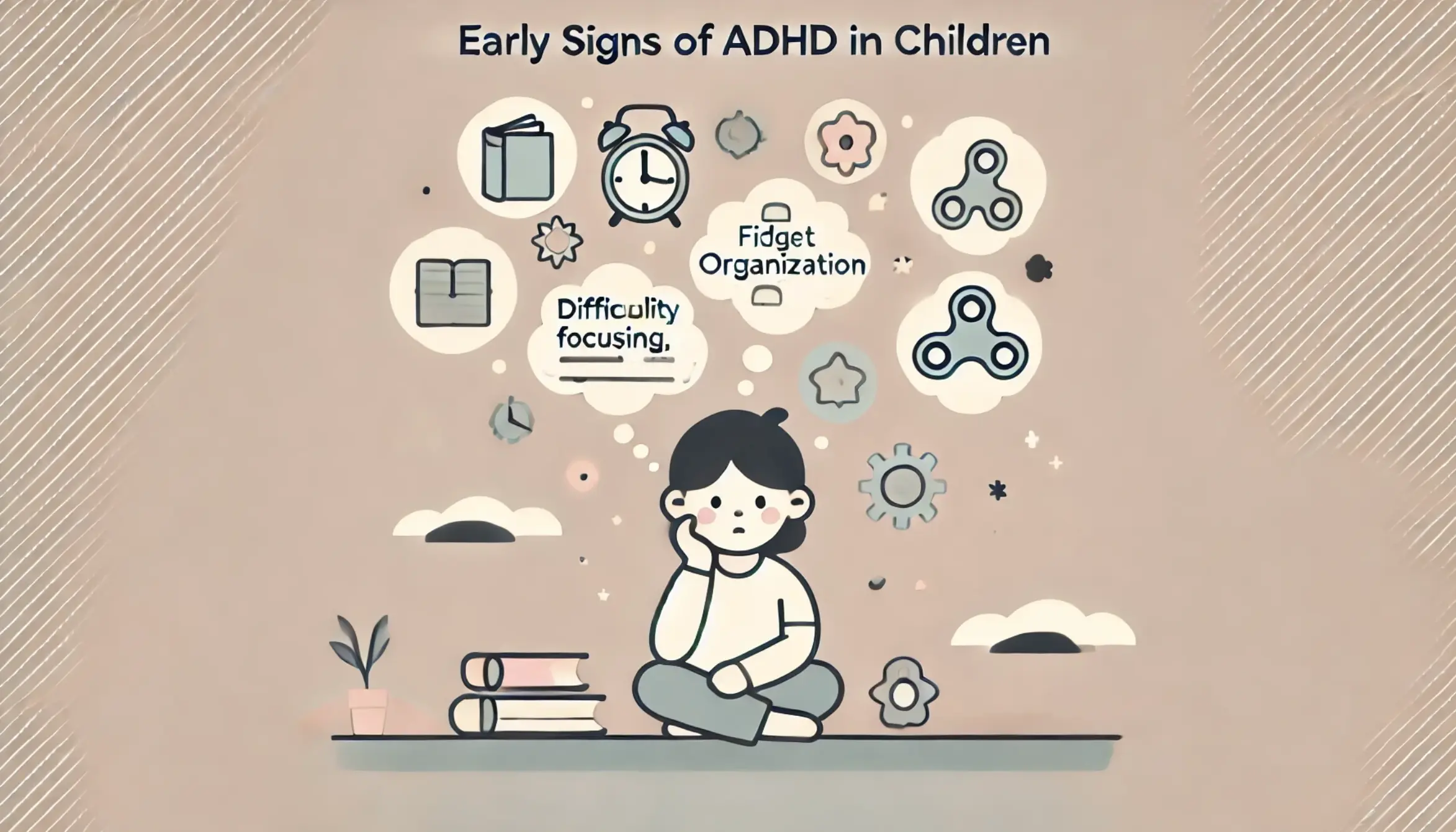Psychological assessments and disability evaluations are critical tools in understanding and supporting individuals facing cognitive, emotional, or physical challenges.
In addition, psychological assessments provide valuable insights into a person’s mental health, helping clinicians diagnose conditions, plan treatment, and monitor progress. On the other hand, disability evaluations play a crucial role in determining eligibility for government benefits and workplace accommodations.
Join us as we delve into how APS can provide support if you or someone dear to you requires psychological assessments and disability evaluations.
Dr. Nicole Kirsch and Ability Psychological Services

Dr. Nicole Kirsch is a licensed clinical psychologist with extensive expertise in psychological assessment and disability evaluations. Over the course of 15 years, she has cultivated a thriving career catering to a diverse clientele encompassing children, adolescents, and adults grappling with intellectual disabilities and severe mental health issues.
Dr. Kirsch excels in neurodevelopmental disability evaluations, like Intellectual Disabilities and Autism Spectrum Disorder. Her journey has honed her skills in psychological assessment, psychopathology, and diagnosis.
With a strong commitment to cultural competence, Dr. Kirsch takes pride in her work’s proficiency. Leveraging her extensive training and experience, she offers psychotherapy, psychological assessment, and valuable supervision to professionals in therapeutic settings.
Driven by a passion for community impact, she strives to connect individuals with vital services and guide clients and families through the intricacies of mental health and developmental disabilities.
Psychological Services Offered by APS
AP offers various psychological services, including Neurodevelopmental Evaluations, which assess and support individuals with developmental and learning differences.
Psychological Evaluations help diagnose and formulate treatment plans for various mental health conditions. Asylum & Immigration Evaluations determine eligibility for immigration relief based on humanitarian or protection needs.
These services collectively promote mental well-being, facilitate fair immigration processes, and aid those facing neurodevelopmental challenges or mental health issues in accessing the appropriate care and support.
Neurodevelopmental Evaluations

- Neurodevelopmental evaluations for Autism spectrum disorder. (ASD) is a complex neurodevelopmental condition defined by various challenges related to social interaction, communication, and repetitive behaviors. ASD encompasses a broad spectrum, with individuals exhibiting varying degrees of impairment. While some individuals with ASD may have exceptional talents or skills, others may require significant support in daily life. Early intervention and tailored therapies can significantly enhance the quality of life for those with ASD, helping them develop essential social and communication skills.
- Limitations in intellectual functioning and adaptive behaviors characterize intellectual disability (ID). People with ID may have communication, self-care, and social skills difficulties. The severity of ID varies, with some individuals having mild limitations and others requiring ongoing support throughout life. Providing appropriate educational and social opportunities for individuals with ID is crucial to helping them lead fulfilling lives.
- Learning disabilities are neurological disorders that impact an individual’s ability to acquire, process, or express information effectively. These disabilities can affect reading, writing, math, or other specific areas of learning. Early detection and targeted interventions, such as specialized teaching methods or assistive technologies, can help individuals with learning disabilities thrive academically and socially.
- Mental health encompasses various conditions affecting emotional, psychological, and social well-being. Conditions like anxiety, depression, bipolar disorder, and schizophrenia are examples. Mental health is as fundamental as physical health, and impacted individuals require access to effective treatment and support. Reduced stigma and increased mental health awareness are important steps toward creating a more inclusive society.
- Attention-deficit/hyperactivity disorder (ADHD) is a neurodevelopmental illness characterized by attention, hyperactivity, and impulsivity difficulties. It can affect people of all ages, and early diagnosis and management can help people with ADHD manage their symptoms successfully, allowing them to attain their full academic and personal potential.
Psychological Evaluations

- Psychological evaluations are comprehensive assessments mental health professionals conduct to diagnose, understand, and formulate treatment plans for various psychological and emotional conditions. These evaluations are vital in providing individuals with the appropriate care and support to improve their mental well-being.
- Social Security evaluations are specialized psychological assessments used to determine an individual’s eligibility for disability benefits through the Social Security Administration (SSA). These evaluations aim to establish whether a person’s mental health condition significantly impairs their ability to work and maintain employment. Qualified psychologists and psychiatrists assess factors like the severity of symptoms, functional impairment, and the impact of treatment to help the SSA make informed decisions about disability benefits.
- Affective disorders, like bipolar disorder and depression, are characterized by significant disruptions in a person’s emotional state. Psychological evaluations help clinicians differentiate between these conditions, assess their severity, and develop tailored treatment plans. These evaluations often involve interviews, mood assessments, and psychological tests to comprehensively understand the individual’s emotional functioning.
- Anxiety disorders encompass various conditions, such as Generalized anxiety disorder (GAD) and obsessive-compulsive disorder (OCD). Psychological evaluations are crucial in diagnosing these disorders, assessing their impact on daily life, and guiding treatment choices. Evaluations may involve standardized anxiety scales, symptom checklists, and clinical interviews.
- Trauma-related disorders, such as trauma-related disorders, such as PTSD (Post-Traumatic Stress Disorder), are often the result of exposure to traumatic events. Psychological evaluations help clinicians identify trauma-related symptoms, assess their severity, and develop appropriate interventions. These assessments often include trauma-focused interviews, symptom questionnaires, and evaluations of functional impairment.
- Psychotic disorders, notably schizophrenia, involve significant thinking, perception, and behavior disturbances. Comprehensive psychological evaluations are essential for diagnosing these disorders, understanding the nature and extent of symptoms, and tailoring treatments such as medication and diagnosis to manage them effectively.
Asylum & Immigration Evaluations
- Asylum and immigration evaluations play a crucial role in the immigration process, assessing an individual’s eligibility for various immigration statuses and benefits, often related to humanitarian or protection needs.
- Asylum evaluations seekers undergo psychological and medical evaluations to establish credible fear of persecution or torture in their home countries. These evaluations help immigration authorities determine if an individual qualifies for asylum in the United States based on a legitimate fear of persecution due to race, nationality, religion, political opinion, or membership in a particular social group.
- Extreme hardship evaluations are typically requested in cases where an immigrant faces deportation, and they seek relief based on the argument that their removal would cause extreme hardship to a qualifying family member, usually a U.S. citizen or lawful permanent resident spouse, parent, or child. These evaluations help immigration authorities assess the validity of the extreme hardship claim.
- N-648 medical certification is a form completed by licensed medical professionals for applicants seeking naturalization who cannot meet the English or civics requirements due to a medical condition. The evaluation determines whether the applicant qualifies for an exemption from these requirements based on their medical condition.
- T-visa, U-visa, and VAWA evaluations are critical for victims of human trafficking, certain crimes, and domestic violence seeking immigration relief in the United States. Licensed professionals, often clinicians or social workers, assess the applicant’s eligibility and the impact of the trauma or crime on their mental and physical well-being.
Mental Health Evaluation Oakland
Ability Psychological Services in Oakland, CA, is dedicated to providing comprehensive psychological services to meet the community’s diverse needs. From Neurodevelopmental Evaluations to Psychological Assessments and Asylum & Immigration Evaluations, our team of skilled professionals is committed to fostering mental well-being, ensuring accurate diagnoses, and supporting individuals in various life circumstances. Whether you seek assistance for yourself or a loved one, our services empower and guide you toward improved mental health, personal growth, and a brighter future. Contact us today!





